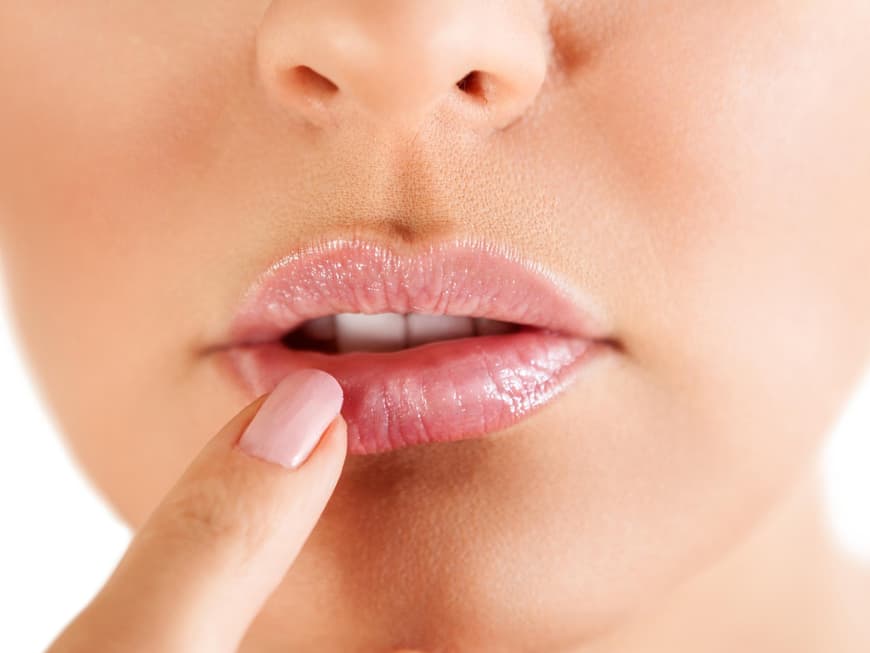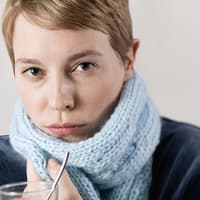
Herpes: What is it and how do you get infected?
The herpes simplex virus type 1 is transmitted by droplet or smear infection. This can happen, for example, when kissing, using someone else's or poorly rinsed glasses or sharing cutlery. Once infected with herpes, the pathogen remains dormant in the body forever and can break out at any time. If the immune system is weakened, herpes can reactivate quickly.
The annoying herpes blisters, which can appear on the lips, eyes, fingernails, genitals, but also on the nose, not only look unattractive, they can also be very painful. In addition to stress, illness and other factors, diet also plays a role when it comes to herpes. We explain what you should consider when it comes to food if you suffer from a herpes infection.
Herpes on the nose: what you can do against the highly contagious viruses
These foods should not be eaten if you have herpes
There is indeed a connection between diet and herpes. Anyone suffering from the virus should know that there are certain foods that promote a herpes outbreak, as they do not provide them with sufficient nutrients and weaken the immune system. In order to multiply, the herpes virus needs the amino acid L-arginine, which is found, for example, in chocolate or in many nuts such as walnuts, almonds or hazelnuts. There are also other foods that you should avoid if you suffer from herpes, as they promote the virus:
- Potato chips
- oatmeal
- tuna
- peas
- lentils
- sugar
- Raisins
Cold sores: these foods should be preferred
Herpes sufferers should pay attention to the nutrient lysine in their diet. Lysine is a natural antagonist to arginine and is said to curb the spread of herpes viruses. These foods are particularly rich in lysine:
- Eggs
- Fish (with the exception of tuna)
- tofu
- soy
- Dairy products (e.g. Parmesan and Gouda)
- Beef
- beans
- Chickpeas
- potatoes
Tip: Make sure you eat a balanced diet and avoid food with synthetic additives. These can irritate the immune system and promote an outbreak. Zinc and vitamin C are also good against herpes in the right doses. In addition to lysine, other home remedies also help with cold sores. These are the best against herpes >>
Get rid of herpes: The best tips >>






